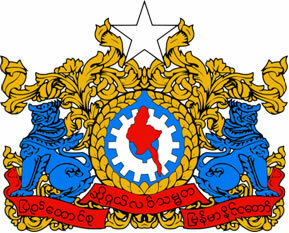O rural exodus it is a migratory movement in which the population residing in rural areas – in the countryside – permanently moves to cities – urban areas. Although it has taken place in all continents, in developed countries, this process happened more gradually, taking, on average, 100 to 200 years to be carried out. In underdeveloped countries, as in the case of Brazil and its Latin American neighbors, migration countryside-city - as the rural exodus is also known - occurred much more rapidly and in large volume populational.
Rural Exodus in Brazil
In Brazil, the rural exodus occurred more intensely in a space of three decades: between 1960 and 1990. The rapid displacement of the population occurred due to the industrialization of the country, which took place in the 1950s, especially in the states of the Southeast Region of Brazil. The expectation of employment attracted a large number of rural workers from different parts of the country in search of better living conditions.
Later, another important factor – in this case, expulsion – displaced even more people from the countryside to the city: the
field mechanization. The replacement of human labor by machines, such as planters, harvesters, cutters and other agricultural implements, caused unemployment and intensified the rural exodus.The explosion of people from the countryside has caused in many urban centers a strong imbalance in various aspects of social structures. Let's see below some effects of the rural exodus in underdeveloped countries such as the Brazil:
-
urban segregation – The population that migrates from the countryside to the city, due to the high costs, cannot inhabit the places closest to the city center. As a result, it is forced to occupy increasingly peripheral areas without the proper urban structure.
Do not stop now... There's more after the advertising ;)
slums – Since the beginning of the rural exodus, the populations had, often as the only alternative, to build and occupy housing in irregular and risky areas, which contributed to the growth of slums in many metropolises Brazilian companies.
Unemployment – The expectation regarding the work was not always fulfilled. The lack of professional qualification and education made the former rural worker have difficulty finding work in the city.
Underemployment – As the offer of workers is greater than that of jobs, people who migrated from field to survive in the city they carry out low quality work and enter the market informal. It's the solution for many families, especially in big cities.
Mobilityurbanand Public transportationharmed – The absence of state planning and adaptation to demographic transformation meant that, in many cities, there was real chaos in urban mobility and public transport. Investment in road infrastructure and in vehicles and equipment for transporting passengers did not keep pace with population growth and the need for people to move.
Increasegives social inequality – the effects listed above are already significant portraits of social inequality intensified by the accelerated process of rural exodus. However, there are other effects resulting from the State's inefficiency in dealing with the arrival of the rural population in cities, namely: absence of professionals and health units that serve the entire urban population, day care centers and schools in insufficient numbers and lack of public lighting in peripheral neighborhoods, public safety, leisure facilities, among others.
By Amarolina Ribeiro
Graduated in Geography
Would you like to reference this text in a school or academic work? Look:
RIBEIRO, Amarolina. "Effects of Rural Exodus in Underdeveloped Countries"; Brazil School. Available in: https://brasilescola.uol.com.br/geografia/efeitos-exodo-rural.htm. Accessed on June 27, 2021.


